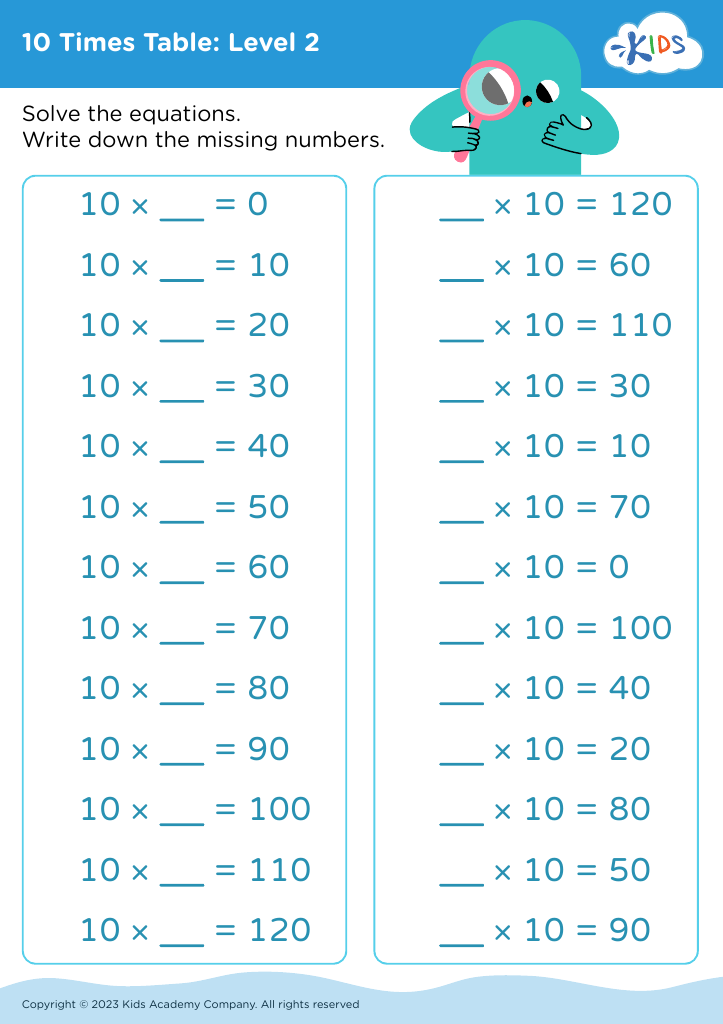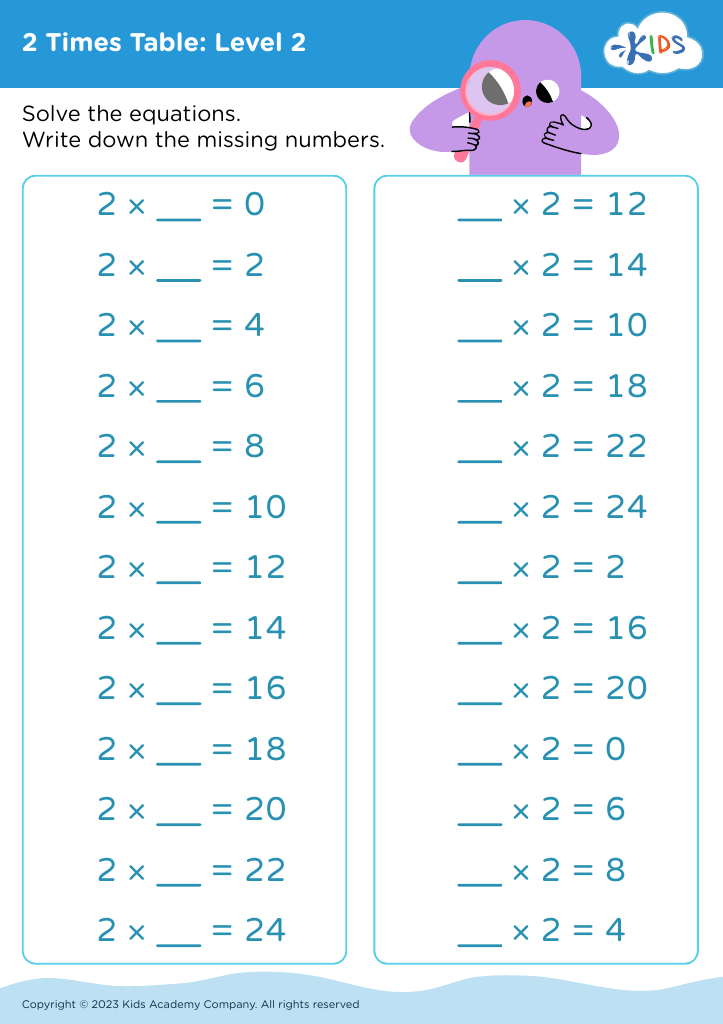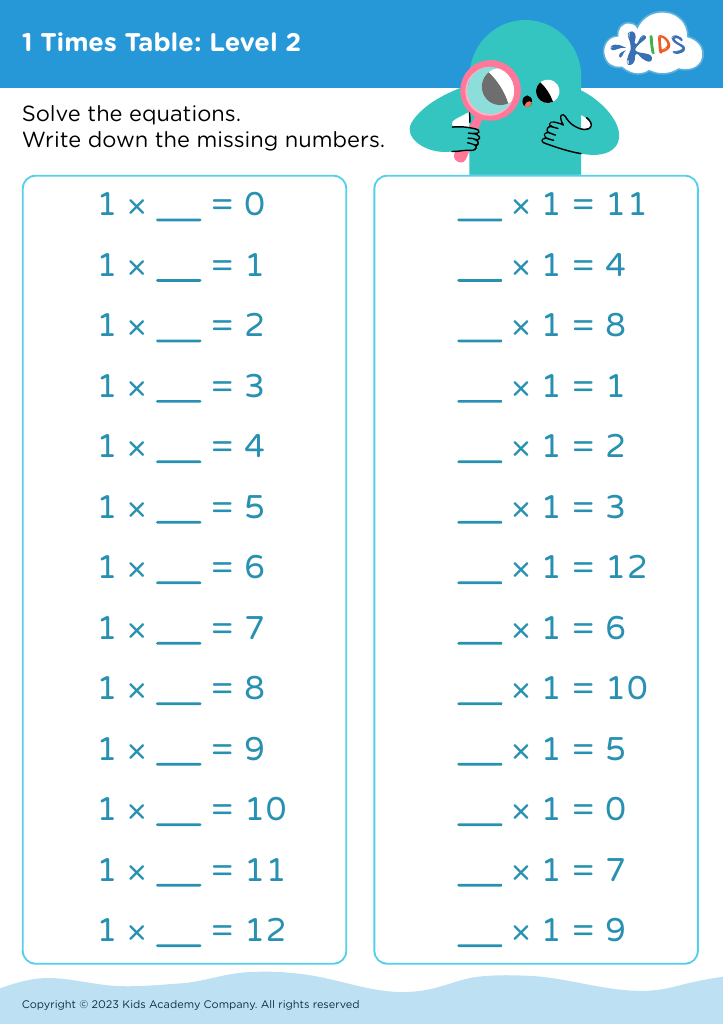Understanding times tables Normal Math Worksheets for Ages 4-8
3 filtered results
-
From - To
Explore our "Understanding Times Tables" math worksheets designed for children ages 4-8! These engaging and interactive resources help young learners master foundational multiplication concepts. Our normal math worksheets feature colorful visuals, easy-to-follow exercises, and a variety of fun activities that make learning times tables enjoyable. With a focus on building confidence and problem-solving skills, these worksheets are perfect for classroom practice or at-home learning. Kids will develop a strong understanding of multiplication while enhancing their number sense and cognitive abilities. Start your child's math journey today with our well-structured, age-appropriate times tables worksheets and watch them thrive!
Understanding times tables and foundational math concepts is crucial for children aged 4-8, as it lays the groundwork for their future mathematical abilities. This early exposure fosters a greater sense of number sense and fluency, which are essential for more complex math tasks later on. When parents and teachers prioritize understanding times tables, they help children develop crucial cognitive skills such as memory, problem-solving, and logical reasoning.
Moreover, mastering multiplication concepts during these formative years boosts children's confidence and reduces math anxiety. Engaging with times tables through fun activities, songs, and games can make learning enjoyable, encouraging a positive attitude toward math. This can set the stage for a lifetime of mathematical curiosity and learning.
Additionally, a solid grasp of times tables enhances children's ability to tackle everyday scenarios, from budgeting to time management, reshaping how they interact with numbers in real-world contexts. As they confront challenges in higher-grade math, those early lessons become invaluable tools. Ultimately, when parents and teachers demonstrate the importance of these foundational skills, they empower children to thrive academically and gain the confidence to embrace the many mathematical challenges life presents.






.jpg)













